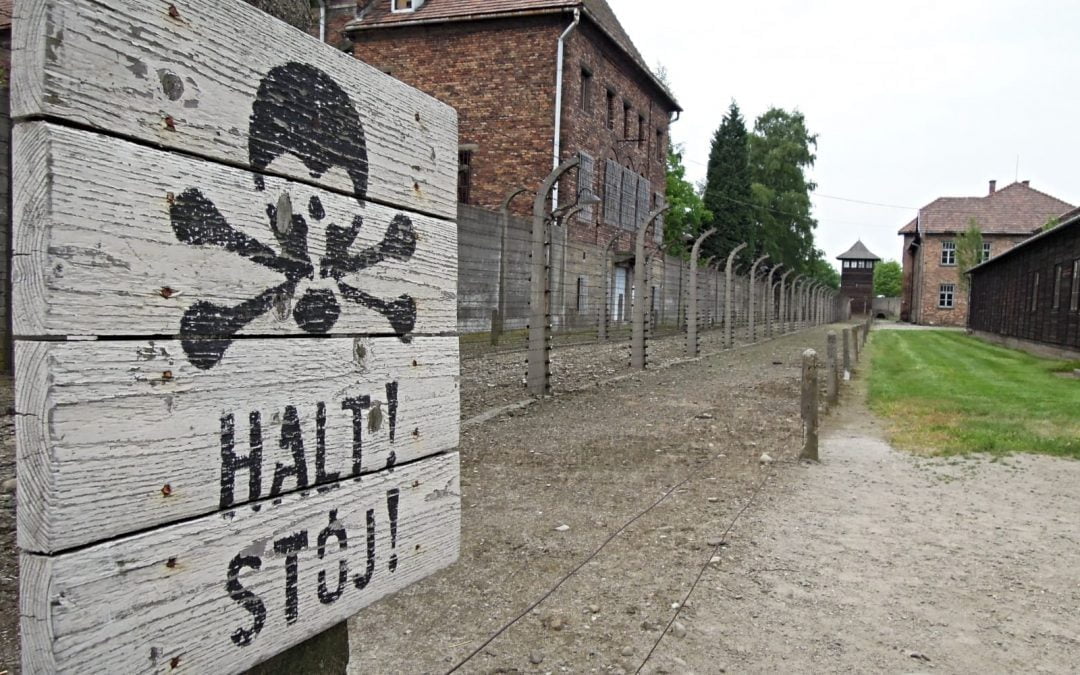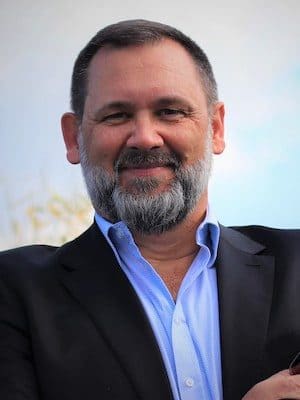We try to incorporate some of the history of the Roma as part of the ministry to short-term teams.
That, sadly, includes the experience of the Roma at the family camp in Birkenau.
We have hosted so many short-term ministry teams on visits to Auschwitz-Birkenau, that I now inform the team that I will be waiting for them to finish the tour at the restaurant across the street.
It is not that the restaurant is that great, nor that I am tired of the team and need a break from them (well, not completely); more, it is that the burden of once again facing the horrors of what humans did to one another is more than I want to carry.
I avoid the experience not in order to forget, but so that I would not become numb to the truth.
Genocide is a term that is not to be used carelessly.
In Article 2 of the Convention on the Prevention and Punishment of the Crime of Genocide, it is defined as, “any of the following acts committed with intent to destroy, in whole or in part, a national, ethnical, racial or religious group, as such: killing members of the group; causing serious bodily or mental harm to members of the group; deliberately inflicting on the group conditions of life calculated to bring about its physical destruction in whole or in part; imposing measures intended to prevent births within the group; [and] forcibly transferring children of the group to another group.”
Even with this clear definition, there is not complete agreement of when the term should be applied.
For example, April 24 is a date of remembrance for the 1.5 million men, women and children murdered during what Armenians call genocide; Turkey, however, objects to referring to this as genocide.
The Chinese government refuses to accept claims of cultural genocide against the Uyghur, a Muslim minority in southwestern China. Others claim that upward of 1 million Uyghurs have been placed in re-education camps with the intention of destroying their cultural/religious identity.
I return often to the writings of Allan A. Boesak, South African Dutch Reformed Church minister and anti-apartheid activist, in order to learn to not be complacent about, and God forbid of, other’s suffering.
I find “Dare We Speak of Hope?” particularly helpful. He writes about the Khoi people who, according to Boesak, experienced the first genocide in Africa at the hands of Dutch and then British colonizers.
The people, their way of life and ancient religion were nearly expunged during colonization to make way for what was considered progress.
Boesak writes of the Khoi people’s belief in God whose name means “wounded knee” and incorporates an understanding of “empathetic solidarity.”
It is easy to see the similarities of this belief with belief in the wounded God-man, Jesus Christ. For the Khoi, this wounded God is able to understand “when we are made vulnerable by powers that seek our destruction,” Boesak writes.
It is more difficult to understand how those around us and with whom we seemingly share solidarity are less empathetic.
Years ago, I visited with dear friends in Croatia. As we walked together along a beautiful river, I noted pockmarks on the walkway. I was told this is a result of when the Serbs bombed the city.
The Bosnian genocide, which took place in the Balkan war zones just 25 years ago, is not the ancient history of colonizers.
Living memories of those scarred during the events continue to testify. A haunting comment I recall from my visit was that one did not know “if or when your neighbor would turn against you.”
I believe that Jesus-followers have a responsibility to be models of empathetic solidarity, especially when it comes to the suffering of others.
Though there is always hope amid suffering, this is not an excuse for people of good will to be silent in the face of evil.
Christians have an obligation to live fully into the empathetic solidarity model of Jesus in our relationships with others.
Is it possible that our contemporary and global grotesque political theater portends a political theater of the absurd?
Could something like mocking others – including those fleeing persecution in fear of their lives and the lives of their children – give way to the unimaginable?
We, particularly those who dare to proclaim the name of Jesus, are particularly aware of the power of words.
“When we look at Auschwitz we see the end of the process. It’s important to remember that the Holocaust actually did not start from gas chambers. This hatred gradually developed from words, stereotypes & prejudice through legal exclusion, dehumanisation & escalating violence,” tweeted the Auschwitz Memorial Museum on Nov. 26, 2018.
Seeds for the decimation of the “other” are sown with words and broadcast or carried by tweeting birds far and wide, where they take root and metastasize.
How then should we respond to the theme of genocide as people who are committed to the teachings of Jesus? An empathetic solidarity model of Jesus should, at a minimum include the following:
1. Be a builder of bridges.
I am not a fan of insulating oneself from people you disagree with. Balkanizing ourselves according to tribes is not an antidote to the roots and fruit of genocide; it is a contributing factor.
We should be bridge-makers in a world where walls are all the rage. Reaching out beyond ourselves and connecting with neighbors – even more so with those with whom we know little about – will not only enrich our lives, it is a pre-emergent herbicide to the bad seeds of stereotypes and prejudice.
Go out and make friends with someone different from yourself; go have coffee or tea and chat. Listen to their story for their sake. Perhaps you will also allow their story to enrich your own.
Be like Jesus who was willing to sit with Samaritans and others his world viewed as outsiders.
2. Watch your communication.
Be aware what messages are coming in and going out. If you are keeping up, this includes tweets as well as forwarding and sharing posts.
This is not about isolating yourself from information you disagree with. It does recognize, however, that the more we expose ourselves to toxic speech, we can become immune to just how dangerous words can be.
Just as sweet and brackish water do not flow from the same source, we cannot ignore the influence of words, which become our vocabulary used to express our thoughts.
To be clear, I am not particularly talking about “cuss words.” The concern should be more on the spirit that leads us to say of another Image-bearer that they are of no worth, which we see in Jesus’ sermon found in Matthew 5.
3. Remember.
The words of George Santayana, “Those who cannot remember the past are condemned to repeat it,” can be seen on a visit to Auschwitz.
The Deuteronomical refrain Jesus heard again and again as he grew up, “Hear, O’ Israel” is an admonition to remember that predates Santayana’s well-known aphorism.
We should not forget that in our history even people of faith have actively or passively participated in the wanton destruction of cultures and of people – Native Americans; dehumanization of slaves; delegitimizing the life and worth of others because of their origin of, or orientation at, birth.
The call to remember should be heard every day, maybe even twice daily.
4. Do not become complacent.
Boesak expertly and rightly recognizes that complacency is symptomatic of positions of privilege.
From places of privilege, we become blind to our own comforts and, in doing so, are insulated from the real life and concerns of others.
We are blind to situations that foster the destruction of the other and how we are too often complicit.
Consistent diligence is required so we are constantly aware of positions of privilege. Confronting neo-colonization, which destroys ways of life and lives of indigenous populations around the world, is an ongoing challenge.
Many times in the Gospels, we are reminded that Jesus saw people and had compassion on them.
Privilege allows us to look over and, in many cases, objectify people, to keep our discussions “only on the issues” and allow ourselves to be blinded to the humanity and real suffering of others.
April 8 was International Roma Day. As mentioned above, April 24 is Armenian Genocide Remembrance Day. In between those dates, Jesus-followers from the West celebrate Easter.
The resurrection reminds us that death does not have the final word. Empathetic solidarity reminds us that we should not allow death’s destructive forces to have the first word either.
Editor’s note: This article is part of a series of articles published this week in recognition of April as Genocide Awareness and Prevention Month. The previous articles in the series are:
Genocide: How Many Times Do We Keep Saying ‘Never Again’? by Eddy Ruble
On Chronicling ‘The Disturbances’: ‘These Things Stay With You’ by Cliff Vaughn
Baptist World Alliance representative to the UN in Geneva, chair of European Baptist Federation’s Freedom and Justice Commission, and Cooperative Baptist Fellowship Field Personnel serving among the Romani people in Slovakia and Czechia. When not serving in any of those capacities or preaching somewhere, you will find him with his camera hiking along the mountainous trails of Poland or Slovakia.


